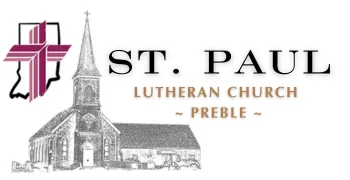
The Parable of the Prodigal Son | Luke 15:1-3, 11-32

The Parable of the Prodigal Son
A Meditation on the Word of God | Luke 15:1-3, 11-32
The entire Christian faith is so beautifully pictured in this Parable. Sin and grace, rebellion and forgiveness: it’s all right here. The son wishes his father dead. That’s why he asks for the inheritance. He wants to be his own god. He is tired of living under his father’s authority. He wants to make his own way in the world without his father in his life. Is there a better depiction of sin than this? Life lived on our terms, without God. But on his own, without his father, the son meets misfortune, famine, and death. When we sow in sin, we reap the fruits of destruction and death. The wages of sin is death! The son has destroyed himself. Sitting among pigs, he realizes his pitiful condition, hungry and poor. This is contrition—sorrow over sin. He comes to himself, and remembers his father’s love for slaves. How many of my father’s servants have more than enough bread, yet I perish here with hunger! His father loves the slaves; maybe he will receive him back as a slave. He has faith in his father’s love.
But he also thinks in a works-righteous way. He imagines the debts he owes to his father, he will have to pay off. He sinned hugely, against heaven and his father. He, by his sins, lost the right of son-ship. This is all true. Indeed, he is no longer worthy to be called his father’s son.
But here is where we see the surprise of grace. The father was looking for his son the whole time! He saw his son while he was a long way off, and felt, not anger, but compassion [V20]. And, for free and totally without any works or merit of the son required, the father restores the son to the full rights and privileges of son-ship—that’s what the ring, the robe, and the shoes mean. In other words, the father forgives his son freely, and without requirement of penance or desire for retribution. This is the grace of God manifest to sinners in Jesus Christ. The prodigal son returns? No. The seeking father loves his wayward son, more like it. So it is with God.
But there is an older brother too. Let’s not forget him! He is a picture of the Pharisees who grumbled that our Lord was eating with sinners. Jesus sinners doth receive is a scandal to the self-righteous Pharisees. So the older brother is scandalized by the father’s love. He believes that he, by his behavior, has been righteous, and that his younger brother is not worthy of such a gracious reception. He believes he is justified before his father by works, not grace. That is why he is mad when he hears of his father’s graciousness. In pride, he thinks himself better than his brother, just like the Pharisees saw themselves as more holy than the sinners Christ was receiving. All these years I have served you, yet you never gave me a young goat to celebrate! What is the older brother’s theological error? He believes he is no more than a slave to his father, and that he is justified by his obedience to the Law. The father corrects now this wayward son. You have always been with me, and all that is mine is yours. The father entreats him to see that his place in his father’s house and kingdom is also by grace. Slaves serve according to the letter of the law, and out of fear of punishment. Sons serve in the freedom of the Gospel, out of gratitude for the God who loves and regards us as sons in Christ. Our place in God’s kingdom, because of Jesus Christ, is not that of slave, but of son. We are saved by grace, through faith alone. God receives sinners. This is good news!


